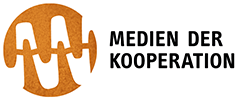B04 - Digital Publics and Social Transformation in the Maghreb
Principal Investigators:
Researchers:
Former Researchers:Dr. Simon Holdermann
(Associate Member)
Dr. Peter Tolmie
(Associate Member)
„This project examines media of cooperation in Morocco and the Moroccan diaspora in Europe. It explores the emergence, fragmentation, and reconfiguration of publics in processes of social transformation.“
Executive Summary
The sub-project focuses on media practices in Morocco and the Moroccan diaspora and analyzes the emergence of current public spheres and forms of cooperation in the transformation processes in North Africa. In the first phase of the project, the establishing and researching a MediaSpace/Computer Club was used to investigate how transnationally far-reaching forms of cooperation in economic, tourism and development-related contexts produce hierarchized public spheres in the High Atlas. In the second phase, an intra-Moroccan and intercontinental comparison was used to examine how media practices form fragmented public spheres under conditions of political repression and transnational mobility. In addition to a computer club in Dortmund, which was brought into the project as (research-) infrastructure, a media space was set up in Al-Hoceima as a center of political protests in the Rif. In the third phase, media environments are now focused on increasingly monitored public spheres of (post-) colonial social formations. For this purpose, state and non-state media practices of monitoring, tracing and surveillance in Morocco and the Moroccan diaspora are to be examined and a Euro-Mediterranean overall picture of hierarchized, fragmented and monitored public spheres is to be developed.
The continuing comparative research and design of cooperative media use takes into account the increasingly intertwined public spheres in Euro-Mediterranean societies. In the central Moroccan Atlas, northern Moroccan Rif and Moroccan diaspora, ecological, political and economic crises manifest themselves differently, so that media-technical foundations of civil society cooperation, social mobilization and political surveillance can be adequately researched through the proven double access. The socio-informatics part should define specific design requirements for digital media, implement them as prototypes and evaluate them. The media-ethnological part is intended to examine the conditions and forms of cooperation that arise, resulting from the different uses of new media. In a locally structured but at the same time transnationally networked community, cooperation is characterized by the clash of different interests and orders of legitimation as well as by locally different affordances, whose ethnographic research informs the principles of participatory design. The combination of ethnology and socio-informatics should help clarify the conditions of political surveillance and civil society cooperation in situations of upheaval and contribute to differentiating a concept of the public sphere that includes hierarchized transitions between protected interior and representative exterior spaces as well as their fragmentation and control.
Theorizing media practices of cooperation in graduated (Phase I), fragmented (Phase II), and surveilled (Phase III) publics amidst socio-technical shifts and socio-ecological crises.
Moroccan (digital) publics and processes of social transformation are characterized by dynamics of
- Migration and related border regimes
- Climate crisis and its (non-) treatment
- Political activism and its control
All three areas entail surveillance practices in digital and analog infrastructures.
We delineate how surveillance, counter-surveillance, and being surveilled concur in the three related areas, spanning the MediaSpaces in the High Atlas, the Rif, and Dortmund.
By exploring the polyvalence of surveillance, our goal is to understand sensing and sensemaking in emerging ‘sensory publics’.
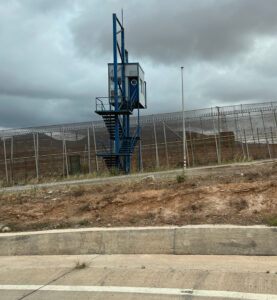
(© Nina ter Laan)
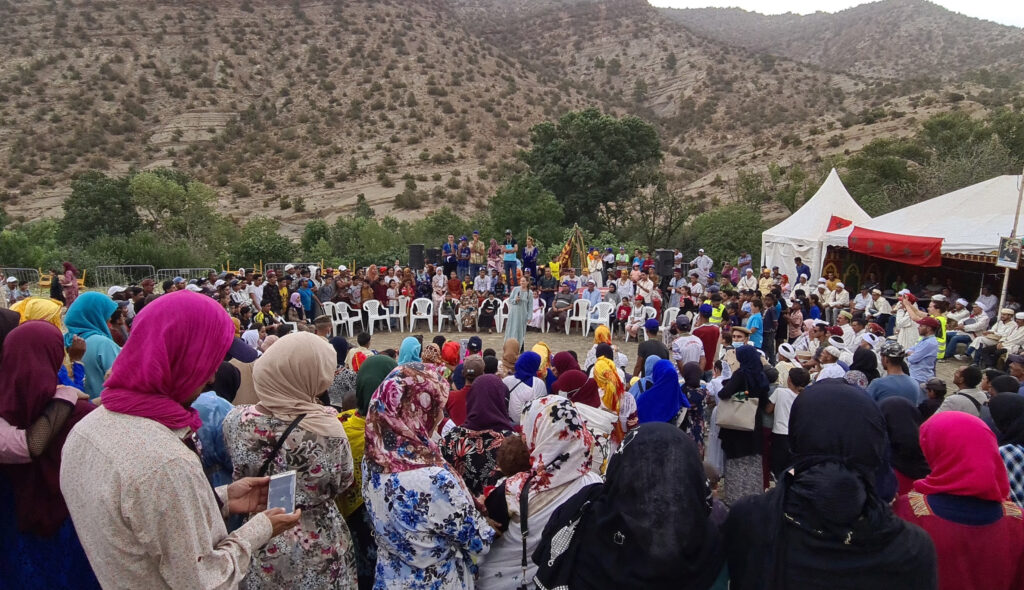
(© Konstantin Aal)
Dual methodological approach:
Socio-informatic ‘on the ground’ approach, prototypical realization, evaluation, and appropriation of the design for ICT in MediaSpaces
Multi-sited ethnography:
- Semi-structured and informal interviews, participant observation
- Participatory action and design research
- Using new forms of cooperation in research and art forms as methodological tools
- Collaborating with local partners on dynamics of crisis and change
- Examining cooperation in and facilitating exchange between Media Spaces
- Tracing forms of surveillance in and out of Morocco and the Moroccan Diaspora
- Analyzing sensor media, sense making, and sensory publics in the Euro-Mediterranean
- Developing an ethnographic and action-research based theory of digital publics and social transformation
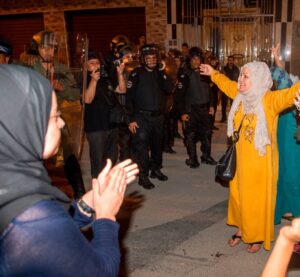
(© Fadel Senna/AFP/Getty Images)
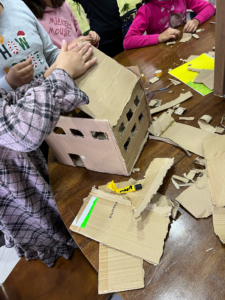
(© Nina ter Laan)
➔ Find the Project Archive 2020–2023 here
Publications
Aktuell
Future-proofing. Making Practice-Based IT Design Sustainable
The book focuses on the wealth of experience from IT design projects in Europe, Africa and North America and addresses the question: how can IT design be implemented sustainably? The authors develop a set of sensitizing concepts that can form a basis for continuously considering sustainability as a factor in IT design and implementing it innovatively.
Simone, Carla; Wagner, Ina; Müller, Claudia; Weibert, Anne; Wulf, Volker, Hrsg. 2022. Future-proofing. Making Practice-Based IT Design Sustainable, Oxford, United Kingdom: Oxford University Press. DOI: 10.1093/oso/9780198862505.001.0001.
